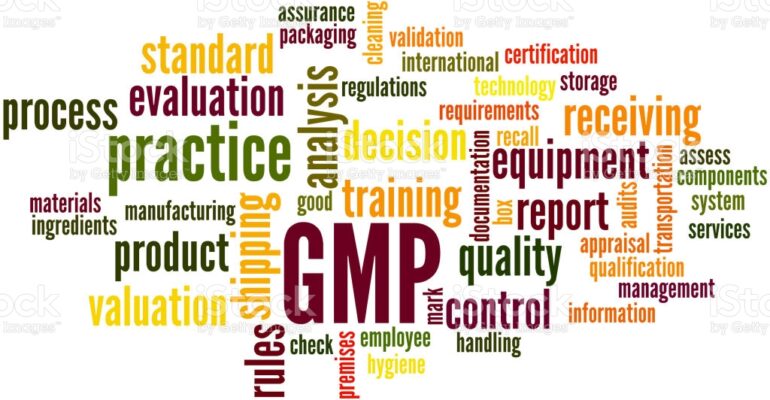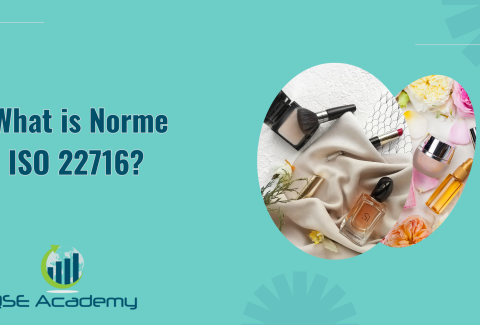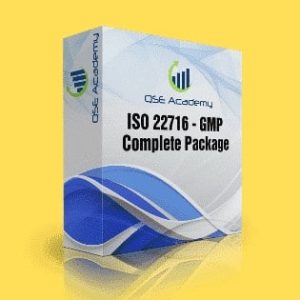GMP for Cosmetics Manufacturing
GMP for Cosmetics Manufacturing
If you’re in the cosmetics industry, you’ve probably heard about GMP certification for cosmetics, but what exactly does it mean? Let’s break it down together in a way that’s easy to understand.
Defining GMP Certification for Cosmetics
GMP stands for Good Manufacturing Practices, and it’s all about ensuring that products are made safely and consistently. When it comes to cosmetics, GMP certification is like a gold stamp of approval that shows your manufacturing processes meet strict quality and safety standards.
Think of GMP certification for cosmetics as a way to prove that your products are made in clean, well-controlled environments where nothing is left to chance. From the raw materials you use to the final packaging of your products, GMP certification ensures that every step of the process is done right.
Why Does GMP Certification Matter?
Let’s face it—cosmetics are products that people apply directly to their skin, hair, or face. Nobody wants to take risks with products that might be contaminated or poorly made. That’s where GMP certification for cosmetics comes in. It’s a way to protect both consumers and manufacturers by setting clear rules for how cosmetics should be produced.
For manufacturers, this certification isn’t just about compliance—it’s about building trust. When your customers see that your products are GMP-certified, they know you’ve gone the extra mile to ensure quality and safety. And that trust can make all the difference in a competitive market.
What Does GMP Certification Cover?
GMP certification for cosmetics covers every aspect of the manufacturing process, including:
- Hygiene: Ensuring that facilities and equipment are clean to prevent contamination.
- Documentation: Keeping detailed records of how products are made, stored, and tested.
- Training: Making sure employees know and follow proper manufacturing practices.
- Quality Control: Testing raw materials and finished products to guarantee consistency.
By following these guidelines, you’re not just meeting industry standards—you’re creating products that customers can trust.
In short, GMP certification for cosmetics is all about ensuring that every product you make is safe, high-quality, and ready to earn the confidence of your customers. It’s a commitment to excellence that sets your brand apart and helps you stay competitive in an ever-growing market.
Why is GMP Certification Important for Cosmetics?
If you’re wondering why GMP certification for cosmetics is such a big deal, you’re not alone. For manufacturers, retailers, and even customers, this certification goes beyond just following rules—it’s about ensuring products are safe, consistent, and high-quality. Let’s explore why GMP certification matters and how it benefits everyone involved.
Ensuring Product Safety
First and foremost, GMP certification for cosmetics is about protecting consumers. Think about it—cosmetics like lotions, makeup, and hair products come into direct contact with our skin, and any contamination or error in the manufacturing process could lead to serious problems.
By adhering to GMP guidelines, manufacturers create products in clean, controlled environments where contamination is minimized. This means the moisturizer you’re using or the lipstick you love is safe, free from harmful substances, and meets strict safety standards.
Building Consumer Trust
In today’s competitive market, trust is everything. Customers want to know they’re buying products from a brand that prioritizes their safety and well-being. When your brand achieves GMP certification for cosmetics, it’s like a seal of approval that tells your customers, “We’ve done everything to ensure this product is high-quality and safe for you.”
This level of trust can translate into customer loyalty. People are more likely to stick with a brand they know takes extra steps to meet quality standards, and GMP certification is a powerful way to demonstrate that commitment.
Meeting Regulatory Requirements
In many regions, GMP compliance is more than just a good idea—it’s a legal requirement. For example:
- In the European Union, cosmetics manufacturers must comply with strict GMP guidelines to sell their products.
- Countries in the ASEAN region also prioritize GMP certification for cosmetics as part of their regulatory frameworks.
For businesses looking to expand internationally, GMP certification opens the door to global markets by ensuring your products meet the necessary regulations.
Consistency Across Batches
Ever bought the same product twice, only to find it feels different the second time? That’s exactly the kind of issue GMP certification for cosmetics is designed to prevent.
GMP requires strict quality control measures at every stage of production, ensuring that every batch of your product meets the same high standards. Whether it’s the texture of a face cream or the scent of a shampoo, consistency is key—and GMP helps you achieve it.
Reducing Risks and Costs
Non-compliance with GMP guidelines can lead to costly problems like product recalls, legal penalties, and damage to your brand’s reputation. By earning GMP certification for cosmetics, you reduce the likelihood of these risks.
For example, a small error in the production process, like using improperly cleaned equipment, could result in contamination. With GMP, you have systems in place to catch these issues before they escalate—saving time, money, and headaches.
Why It Matters
In the end, GMP certification for cosmetics is about more than just meeting industry standards—it’s about making products that people feel good about using. From ensuring safety to building trust and opening doors to new markets, GMP certification is an investment in your brand’s future.
When you take the steps to get certified, you’re not just following rules—you’re setting your business apart as a leader in quality and care. And that’s something both you and your customers can feel good about!
Key Requirements for GMP Certification in Cosmetics
Achieving GMP certification for cosmetics might sound complicated, but it’s all about following a clear set of rules to ensure your products are safe, consistent, and high-quality. These requirements focus on every aspect of manufacturing, from the cleanliness of your facilities to the training of your team. Let’s break it down into simple steps.
1. Clean and Hygienic Facilities
The foundation of GMP certification for cosmetics is maintaining clean and hygienic manufacturing facilities. Think about it—no one wants to buy a skincare product made in an environment that isn’t spotless.
This includes:
- Regular cleaning schedules for equipment and workspaces.
- Preventing contamination by separating raw materials from finished products.
- Designing facilities to allow smooth workflows and avoid cross-contamination.
Whether it’s a hand cream or a shampoo, maintaining a clean space ensures every product meets safety standards.
2. Detailed Documentation
Here’s a key principle of GMP: If it’s not documented, it didn’t happen. To earn GMP certification for cosmetics, you’ll need to maintain detailed records of your manufacturing processes.
This includes:
- Batch production records to track how each product was made.
- Ingredient sourcing documentation to verify the quality and safety of raw materials.
- Equipment maintenance logs to ensure machines are functioning properly.
Having accurate, up-to-date documentation makes it easy to trace any issues and ensures your processes are transparent and reliable.
3. Staff Training
Your team plays a critical role in meeting the requirements for GMP certification for cosmetics. Every employee involved in manufacturing, testing, or packaging must understand and follow GMP guidelines.
Key aspects of training include:
- Proper hygiene practices, such as wearing protective clothing.
- Understanding the importance of cleanliness and avoiding contamination.
- Knowing how to document processes accurately and consistently.
A well-trained team ensures that every step of production aligns with GMP standards, reducing the risk of errors.
4. Quality Control
Quality control is another essential component of GMP certification for cosmetics. This means checking that your products meet the required standards at every stage of production, from raw materials to the finished product.
Quality control measures include:
- Testing raw ingredients for purity and safety before production begins.
- Conducting regular inspections during manufacturing to catch any inconsistencies.
- Performing final checks on packaging to ensure proper labeling and storage instructions.
By prioritizing quality control, you can guarantee that every batch of your product is as good as the last.
5. Equipment and Maintenance
Well-maintained equipment is crucial for producing high-quality cosmetics. To meet the requirements for GMP certification for cosmetics, manufacturers must:
- Regularly inspect and maintain equipment to prevent malfunctions.
- Ensure that machines are cleaned thoroughly between production batches.
- Calibrate equipment as needed to maintain accuracy and consistency.
Reliable equipment helps minimize risks and ensures that your products meet the expected standards.
Why These Requirements Matter
The requirements for GMP certification for cosmetics might seem detailed, but they’re all about creating a system that protects your customers and your brand. By following these guidelines, you’re showing that you care about quality, safety, and consistency.
Plus, meeting these requirements isn’t just about compliance—it’s about building a foundation for long-term success. When your manufacturing processes are well-organized and transparent, you’re not just earning a certification—you’re earning the trust of your customers and setting your business up for growth.
The Process of Obtaining GMP Certification for Cosmetics
If you’re considering GMP certification for cosmetics, you might be wondering what the process looks like. Don’t worry—it’s not as overwhelming as it sounds! With a step-by-step approach, you can achieve certification and show the world that your brand prioritizes safety and quality. Let’s walk through the key steps together.
1. Conducting a Gap Analysis
The first step in obtaining GMP certification for cosmetics is figuring out where you currently stand. A gap analysis helps you identify areas where your processes meet GMP requirements and areas that need improvement.
This involves:
- Reviewing your manufacturing facilities, equipment, and workflows.
- Checking your documentation practices to ensure traceability.
- Comparing your current processes with GMP standards to spot any gaps.
Think of it as taking stock of what you already have and mapping out what you need to improve.
2. Updating Processes and Facilities
Once you’ve identified gaps, it’s time to address them. This step might involve:
- Upgrading your facilities to ensure they meet hygiene and cleanliness standards.
- Introducing new protocols for staff training or equipment maintenance.
- Implementing stricter quality control measures to guarantee consistency.
It’s all about creating an environment where products are manufactured under safe and controlled conditions.
3. Preparing Documentation
Documentation is a cornerstone of GMP certification for cosmetics. To get certified, you’ll need detailed records for every step of your manufacturing process.
Key documents include:
- Standard Operating Procedures (SOPs) for tasks like cleaning, production, and testing.
- Batch production records that detail how each product is made.
- Supplier and raw material documentation to verify ingredient quality.
Good documentation not only helps you meet GMP requirements but also ensures your processes are transparent and traceable.
4. Training Your Team
Your employees are the backbone of your manufacturing operations, so it’s essential to ensure they’re well-trained. As part of the GMP certification for cosmetics process, your team needs to understand:
- Proper hygiene practices to prevent contamination.
- The importance of following Standard Operating Procedures.
- How to accurately document their work.
Providing regular training sessions keeps everyone on the same page and reduces the risk of mistakes.
5. Undergoing an External Audit
After updating your processes and preparing your documentation, it’s time for an external audit. During this step, a third-party certification body will evaluate your compliance with GMP standards.
The auditor will:
- Inspect your facilities to ensure they meet GMP requirements.
- Review your documentation for accuracy and completeness.
- Assess your quality control measures and manufacturing processes.
If any non-conformities are found, don’t worry—you’ll have the chance to address them before final certification.
6. Addressing Non-Conformities
If the audit identifies areas that need improvement, this is your opportunity to fix them. Certification bodies typically provide detailed feedback, so you’ll know exactly what to work on.
Once you’ve made the necessary changes, a follow-up audit will confirm that everything is up to standard.
7. Receiving Certification
After passing the audit, congratulations—you’ll receive your GMP certification for cosmetics! This certification proves that your manufacturing processes meet strict safety and quality standards, giving your brand a competitive edge and building trust with customers.
Why This Process is Worth It
The process of obtaining GMP certification for cosmetics might take some time and effort, but the benefits are worth it. Certification not only ensures that your products are safe and consistent but also positions your brand as a leader in quality and care.
By following these steps, you’re not just checking a box—you’re creating a solid foundation for growth, trust, and success in the cosmetics industry. So, are you ready to take the leap? Your customers (and your future self) will thank you!
Benefits of GMP Certification for Cosmetics Manufacturers
If you’re considering GMP certification for cosmetics, you’re probably wondering: Is it worth the effort? The short answer is yes! This certification offers a range of benefits that go beyond compliance, helping your brand grow, earn trust, and stand out in a competitive market. Let’s take a closer look at why GMP certification is such a game-changer for cosmetics manufacturers.
1. Gaining Consumer Trust
In the cosmetics industry, trust is everything. Customers want to know that the products they use on their skin and hair are safe, high-quality, and made with care. GMP certification for cosmetics sends a clear message: your brand prioritizes safety and quality at every step of production.
This certification acts as a seal of approval, giving customers confidence in your products. Over time, this trust can translate into loyalty, repeat purchases, and glowing reviews.
2. Meeting Regulatory Requirements
Many regions, including the European Union and ASEAN, require manufacturers to comply with GMP standards to sell cosmetics in their markets. By obtaining GMP certification for cosmetics, you’re not just meeting these regulations—you’re positioning your brand to access global markets.
For example, if you’re eyeing international expansion, GMP certification can help you navigate complex regulatory landscapes and avoid potential roadblocks.
3. Improving Product Quality
GMP isn’t just about meeting rules—it’s about creating a culture of excellence. By following GMP guidelines, you ensure that every product you manufacture meets high standards of safety, consistency, and quality.
For example:
- Raw materials are tested for purity before production begins.
- Manufacturing processes are carefully monitored to prevent contamination.
- Finished products are inspected to ensure they meet specifications.
This focus on quality control helps you create products that consistently delight your customers.
4. Minimizing Risks
Mistakes in manufacturing can be costly. From product recalls to damaged reputations, the risks of non-compliance are high. GMP certification for cosmetics helps you minimize these risks by putting strong systems and controls in place.
For instance, thorough documentation allows you to trace issues back to their source and resolve them quickly. Preventing contamination, errors, or inconsistencies ensures your products are safe and ready for market.
5. Competitive Advantage
In a crowded cosmetics market, GMP certification can set your brand apart. Certification shows that your business is committed to the highest standards, giving you a competitive edge over manufacturers who don’t prioritize compliance.
This advantage can be especially valuable when working with retailers or distributors who prefer to partner with certified brands. GMP certification demonstrates professionalism, reliability, and a commitment to quality.
6. Access to Global Markets
If you’re dreaming of selling your cosmetics worldwide, GMP certification is often a non-negotiable requirement. Many countries require GMP certification for cosmetics to ensure imported products meet their safety and quality standards.
By achieving certification, you’re opening doors to new opportunities and positioning your brand for international success.
7. Streamlining Operations
One of the less obvious benefits of GMP certification is how it improves your internal processes. By standardizing workflows, maintaining clear documentation, and training your team, you create a more efficient and organized operation.
This doesn’t just make compliance easier—it also boosts productivity, reduces waste, and helps your business run more smoothly.
Why These Benefits Matter
At its core, GMP certification for cosmetics is about building a better, stronger business. It’s an investment in safety, quality, and customer trust that pays off in the form of loyal customers, regulatory compliance, and global opportunities.
When you choose to get certified, you’re not just following a guideline—you’re showing the world that your brand is serious about creating products people can rely on. And in an industry as personal as cosmetics, that makes all the difference.
Challenges in Achieving GMP Certification for Cosmetics
While GMP certification for cosmetics offers a ton of benefits, let’s be honest—it’s not without its challenges. For many businesses, especially smaller ones, the path to certification can feel overwhelming. But don’t worry, with the right mindset and strategies, these challenges are absolutely manageable. Let’s take a closer look at what you might face and how to overcome it.
1. High Costs of Compliance
One of the most common hurdles in achieving GMP certification for cosmetics is the cost. Upgrading facilities, investing in training, and implementing new systems all require financial resources.
For smaller businesses or startups, this can be a significant challenge. However, it’s important to view these expenses as an investment in your brand’s future. Compliance reduces risks, avoids costly mistakes, and helps you build a reputation for quality—all of which can lead to long-term growth.
Tip: Start small. Focus on addressing the most critical areas first, and spread out investments over time. Grants or industry-specific funding programs may also be available to support compliance efforts.
2. Complexity of Documentation
Another challenge is the sheer amount of documentation required for GMP certification for cosmetics. From recording batch production details to maintaining cleaning logs, the paperwork can feel endless.
But documentation is vital—it’s what ensures your processes are traceable and consistent. If an issue arises, these records help you pinpoint the cause and fix it quickly.
Tip: Use technology to simplify documentation. Digital tools and compliance software can automate record-keeping and make it easier to stay organized.
3. Staff Training and Engagement
Your team plays a huge role in achieving GMP certification, but getting everyone on board can be tricky. Employees may resist new protocols, find the guidelines too complex, or struggle to see the importance of compliance.
Tip: Invest in regular training sessions that are practical and easy to understand. Help your team see how their roles directly contribute to creating safe, high-quality products. When people feel empowered and informed, they’re more likely to embrace the changes.
4. Maintaining Consistency
Achieving GMP certification isn’t a one-time event—it’s an ongoing commitment. Maintaining consistent processes and standards day after day can be challenging, especially as your business grows.
For example, as production scales up, small lapses in quality control or hygiene practices can lead to larger problems.
Tip: Schedule regular internal audits to ensure compliance is maintained. Set up clear Standard Operating Procedures (SOPs) so everyone knows exactly what’s expected of them.
If your cosmetics are sold in multiple countries, you may face varying GMP requirements. While GMP certification for cosmetics is recognized globally, some regions may have additional or slightly different guidelines.
Tip: Work with a compliance expert who understands the regulations in your target markets. Their knowledge can help you streamline the process and avoid costly missteps.
6. Upgrading Facilities and Equipment
Sometimes, achieving GMP certification for cosmetics requires physical changes to your production environment. For example:
- Upgrading ventilation systems to improve air quality.
- Designing workflows to prevent cross-contamination.
- Regularly maintaining and calibrating equipment.
These upgrades can be costly and time-consuming, but they’re crucial for compliance.
Tip: Prioritize the most critical upgrades first, and create a timeline to address other changes gradually.
Why Overcoming These Challenges is Worth It
While the path to GMP certification for cosmetics isn’t always easy, the rewards far outweigh the challenges. By investing in compliance, you’re protecting your customers, enhancing your brand reputation, and opening doors to new markets.
Every step you take brings you closer to creating a business that’s not just successful, but also respected and trusted in the cosmetics industry. So, take it one step at a time—you’ve got this!
Tips for Successfully Implementing GMP Certification for Cosmetics
Earning GMP certification for cosmetics can feel like a big task, but with the right approach, it’s absolutely achievable. Whether you’re just starting or refining your processes, a few practical tips can make all the difference. Let’s explore how to streamline your journey to certification and make the process as smooth as possible.
1. Start with a Gap Analysis
Before diving into the certification process, it’s essential to know where you stand. A gap analysis is like taking a snapshot of your current operations and comparing it to GMP requirements.
This helps you identify:
- Areas where you already meet the standards.
- Gaps that need attention, like documentation, facility cleanliness, or employee training.
Why it works: A gap analysis gives you a clear roadmap to focus your efforts, saving time and resources.
2. Invest in Employee Training
Your team is at the heart of everything you do, and their knowledge and actions play a huge role in achieving GMP certification for cosmetics.
Make sure your staff understands:
- The importance of GMP and how it protects both the business and customers.
- Their specific roles in maintaining compliance, from documenting processes to following hygiene protocols.
- How to handle audits or inspections confidently.
Why it works: Well-trained employees reduce the risk of mistakes and make compliance a shared responsibility, not a solo effort.
3. Use Technology to Simplify Compliance
One of the biggest hurdles in achieving GMP certification for cosmetics is managing all the documentation and monitoring requirements. This is where technology comes to the rescue!
Consider:
- Digital tools for tracking production batches, cleaning schedules, and ingredient sourcing.
- Compliance management software to streamline record-keeping and automate reminders for audits or maintenance.
Why it works: Technology saves time, reduces human error, and makes your processes more efficient.
4. Develop Clear Standard Operating Procedures (SOPs)
SOPs are the backbone of GMP compliance. They outline exactly how tasks should be performed to ensure consistency and safety.
For example, you might create SOPs for:
- Cleaning and sanitizing equipment.
- Handling raw materials and preventing contamination.
- Conducting quality checks at each stage of production.
Why it works: SOPs eliminate guesswork and keep your team aligned, even during busy production cycles.
5. Prioritize Regular Internal Audits
Waiting until the official certification audit isn’t a good idea. Internal audits give you a chance to catch and fix issues before they become bigger problems.
During an internal audit, check:
- Facility cleanliness and equipment maintenance.
- Documentation for accuracy and completeness.
- Whether employees are following established procedures.
Why it works: Regular audits build confidence and help ensure you’re always inspection-ready.
6. Focus on Continuous Improvement
Compliance isn’t a one-and-done deal—it’s an ongoing commitment. After achieving GMP certification for cosmetics, keep looking for ways to improve your processes and stay ahead of industry standards.
This might include:
- Staying updated on regulatory changes.
- Gathering feedback from employees and customers.
- Investing in better tools or training as your business grows.
Why it works: Continuous improvement keeps your operations efficient, your products consistent, and your customers happy.
7. Seek Expert Guidance
If the path to GMP certification for cosmetics feels overwhelming, consider working with a consultant or expert who specializes in GMP compliance. They can provide valuable insights, simplify complex requirements, and guide you through the process.
Why it works: Having an expert by your side can save time and ensure you’re on the right track.
Why These Tips Matter
Achieving GMP certification for cosmetics is a journey, and like any journey, it’s easier when you have the right tools, team, and plan in place. By taking these steps, you’re not just earning a certification—you’re building a stronger, more reliable brand that customers can trust.
Remember, every effort you put in now will pay off in the form of safer products, loyal customers, and a thriving business. You’ve got this!
Conclusion: Why GMP for Cosmetics Matters
As we wrap up, let’s take a moment to reflect on why GMP certification for cosmetics is such a game-changer. It’s not just about following rules or ticking boxes—it’s about creating products you can be proud of and building trust with your customers.
A Commitment to Quality and Safety
At its core, GMP certification for cosmetics is about ensuring that every product you manufacture meets the highest standards of quality and safety. Whether it’s a moisturizer, a lipstick, or a shampoo, customers deserve to know that what they’re using is safe and effective. Certification proves that your brand takes this responsibility seriously.
Think of GMP certification as a promise—a promise to your customers, your partners, and even yourself that your products are made with care and integrity.
Unlocking New Opportunities
With GMP certification for cosmetics, the world becomes your marketplace. Many regions, including the EU and ASEAN, require GMP compliance for imported cosmetics. By earning certification, you’re not just meeting these requirements—you’re opening the door to global opportunities.
Whether you’re looking to expand into new markets or strengthen your position in existing ones, GMP certification is a powerful tool for growth.
Building Consumer Trust and Loyalty
In today’s competitive cosmetics industry, trust is everything. When customers see that your brand is GMP-certified, they know they can rely on you for safe, consistent, and high-quality products. And trust doesn’t just lead to one-time purchases—it creates loyal customers who keep coming back.
Creating a Culture of Excellence
Achieving and maintaining GMP certification for cosmetics isn’t just a one-time effort—it’s a journey that encourages continuous improvement. From streamlining operations to training your team and refining your processes, GMP certification pushes your business to be its best.
It’s not just about meeting industry standards—it’s about exceeding them and setting your brand apart as a leader in quality and care.
Final Thoughts
So, why does GMP certification for cosmetics matter? Because it’s more than a certification—it’s a foundation for building a successful, trusted, and resilient business. It’s an investment in your products, your customers, and your future.
If you’re ready to take the next step, start small, stay consistent, and remember that every effort you make brings you closer to earning that certification—and the rewards that come with it. You’ve got this!
Let’s make ISO less about stress and more about success! 🙏
make ISO standards less intimidating and more approachable for everyone.
Whether it’s ISO 9001, ISO 22000, or the cosmetics-focused ISO 22716,
I’ve spent my career turning complex jargon into clear, actionable steps
that businesses can actually use. I’m not here to call myself an expert—I prefer “enthusiast” because I truly love what I do.
There’s something incredibly rewarding about helping people navigate food safety and quality management systems
in a way that feels simple, practical, and even enjoyable.
When I’m not writing about standards, you’ll probably find me playing Piano 🎹, connecting with people, or diving into my next big project💫.
Looking for More Resources on ISO 22716?
If you found this article helpful, explore our premium resources designed to help you achieve ISO 22716 certification efficiently:
- 📦 Complete Documentation Package for ISO/IEC 22716 2017: Get all the essential templates and documents you need for fast, easy implementation.
- 🎓 Online Course on ISO/IEC 22716 2017 : Enroll in our comprehensive training to master the key concepts and practical steps toward certification.
- 📋 ISO/IEC 22716 2017 Checklist: Download our detailed checklist to ensure you’ve covered every step of the process.
These resources are tailored to meet your needs and ensure a smooth certification journey. Explore them today and get one step closer to success!





















